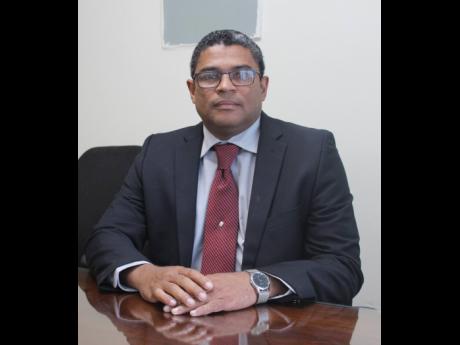Earth Today | Time to revisit wastewater
IN THE face of prevailing water shortages, made worse by the current blistering heat, and with projections for worsening conditions associated with climate change, stakeholders have noted the need to relook at wastewater as an important resource.
“Climate change is here. Treated water gives you another option and increases your resilience. The more sources of water you have, the better off you are,” said Donna Sue Spencer, communications specialist with the Global Environment Facility (GEF)-funded projected of United Nations (UN) Environment, ‘Integrating Water, Land and Ecosystems Management in Caribbean Small Island Developing States’.
“Treated water is an untapped resource, but of course, it needs investment. If we could, it would help us to deal with so many things,” she added.
Spencer previously worked on the Caribbean Regional Fund for Wastewater Management (CReW) project, a four-year effort that began in 2011.
Also funded by the GEF and implemented by the Inter-American Development Bank and UN Environment, that project looked, among other things, at investment and innovative financing and reforms for wastewater management; as well as communication and outreach.
CReW MESSAGE
“The message from CReW would have been that investment in treated water as a source of water, certainly for some things, would be forward looking and would help us to cope better with some of the problems we experience on a repeated basis,” Spencer told The Gleaner of the project which benefited some 13 islands, including Jamaica.
Meanwhile, some stakeholders have been taking note.
Back in 2016, for example, J. Wray & Nephew (JWN) invested in excess of $700 million to improve its wastewater management system at its three Spanish Town Road complexes to better manage the industrial waste generated by its operations. It afforded, according to the company, an even ‘more environmentally friendly JWN’ and with the added benefit of treated water that can be used for irrigation.
According to Spencer, the time has passed to be stuck on mainly talking about wastewater as a viable part of the solution to the island’s water woes.
“We are not making the progress we could … We wait until we are in the drought to start thinking about how we could solve it. Ultimately, if we could solve this or make sure the water needs are provided, it would certainly help us in the longer term planning.”
UNTAPPED OPPORTUNITY
Chris Corbin, programme officer for assessment and management of environmental pollution/communication education, training and awareness with UN Environment/Caribbean Environment Programme, has himself long advanced the value of wastewater.
“It is an untapped opportunity with the potential to safeguard dwindling potable water supplies while providing opportunities for energy and nutrient recovery. However, for that role of wastewater to be fully realised, we have to change our mindsets, our perception and our attitudes towards wastewater management and treatment and the use of treated wastewater in the region,” he said on the subject a few years ago.
Managing director for the Water Resources Authority, Peter Clarke, is himself advancing the value of wastewater.
“We have to recognise the resource that wastewater is,” he said.
“The more we can reserve freshwater, the more we can put ourselves in a position to be resilient to climate change. You can’t turn back climate change. You can only respond to climate change,” Clarke added, suggesting that the move to expand the utilisation of treated water is an essential part of that response.



